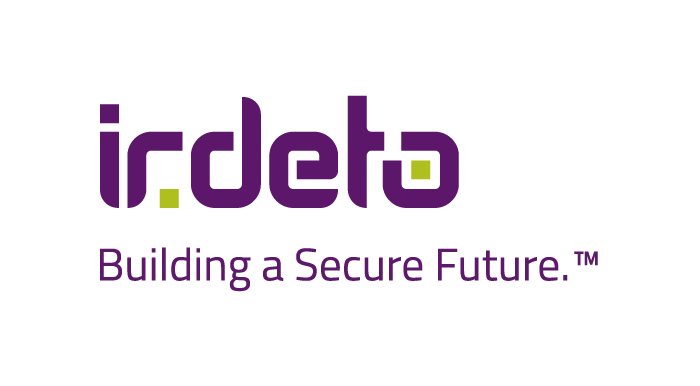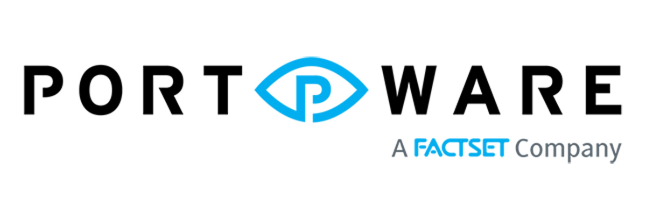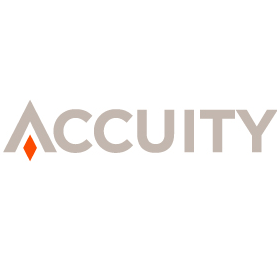Published

Marten Nelson
co-founder and VP of Marketing at Token
There is a widely-held belief in the banking industry that PSD2 access to accounts (XS2A) has to be provided for free. This is not true. see more
- 01:00 am

Rival Systems (Rival), an award-winning provider of trading and risk management software, today announced that it has integrated into its trading platform QuantHouse’s end-to-end ultra-low latency market data feed. The integration of QuantFEED into the Rival Trader and Rival API platforms further strengthens Rival’s multi-asset class offering with one of the fastest, most comprehensive global market data offerings available.
The move enables mutual clients of Rival and QuantHouse to benefit from the ability to seamlessly pull QuantFEED data into Rival’s front-end trading and algorithmic strategy development software, with the flexibility to configure the market data to meet their varying latency and cost requirements. The feed, including hardware, software and telecommunications components, integrates directly into the full functionality of Rival Trader and Rival API, including building and executing algorithms using the ultra-low latency data.
Rival Systems CEO Robert D’Arco said: “As we continue to grow beyond futures and options into the equity space and expand our connectivity to exchanges outside the U.S., we want to ensure that our users have all of the tools at their disposal to benefit from the full power of our sophisticated analytics and trading offering. Integrating with QuantHouse provides a seamless experience for our mutual clients to leverage the unique strengths of our respective technologies.”
Salloum Abousaleh, Managing Director, Americas, QuantHouse, said: “We are delighted to offer our QuantFEED technology to our mutual clients, who will benefit from the latest in ultra-low latency market data feeds. Rival understands the importance of providing the very best technology to clients so firms can focus on the business of remaining competitive in this fast-moving trading environment, safe in the knowledge that they are optimizing their trading performance to the highest possible standard.”
Related News
- 01:00 am

Irdeto, the world leader in digital platform security, and Rogue Wave Software, maker of Akana and a leading provider of API Management, API security and Microservices solutions for digital businesses, have announced a partnership to help banks and payment service providers (PSPs) protect their open APIs. The partnership brings to the market a solution to secure open APIs, combining products that offer protection from the API gateway through to the end-user’s device or application. In addition to providing end-to-end protection, the partnership also helps banks and PSPs comply with PSD2’s Access to Account (XS2A) and Common and Secure Communication (CSC) requirements.
The payments and banking industry is undergoing digital disruption as financial institutions open their services to third-parties through open APIs. While this open banking approach creates new business models and fosters innovation, it also introduces a variety of security vulnerabilities. The partnership between Irdeto and Rogue Wave addresses those vulnerabilities by providing services and tools to help protect APIs and applications against a wide variety of attacks, including Denial of Service (DoS), SQL Injections (SQLi), Man-in-the-Middle (MitM) attacks, malware injections and more.
“A successful cyberattack has the potential to permanently damage a financial institution’s reputation,” said Ian Goldsmith, Vice President of Akana Product Management, Rogue Wave. “Protecting open APIs is a critical step banks and PSPs must take to succeed in the ever-evolving financial landscape. Our partnership with Irdeto helps guide the financial industry through digital disruption to securely accelerate innovation.”
While open APIs connect financial enterprises with mobile apps and a large community of developers, these APIs also need to be scalable, reliable and secure. As banks and PSPs expand their services across digital channels they need to become more vigilant about security and protect their APIs against threats and cyber attacks.
“Financial institutions face a growing number of threats as cybercriminals look at different ways to exploit vulnerabilities from APIs,” said David W. Jones, Global Head of Payments & Banking, Irdeto. “In order to adequately protect customers’ sensitive financial information, banks and PSPs must secure their entire infrastructure from the API gateway to the end device or application. By partnering with Rogue Wave, we are providing financial institutions with the peace-of-mind needed to innovate freely.”
Cloakware for Payments & Banking by Irdeto helps banks and PSPs capitalize on digital disruption by taking security to the next level, enabling new services and accelerating innovation. Irdeto’s unique solutions for Payments & Banking help financial institutions prevent MitM attacks and mitigate tampering-based attacks. Irdeto protects and hardens applications and APIs from the client to the server, across all devices, browsers, interfaces and gateways, completely in-line with PSD2 and PCI security standards.
Related News
- 09:00 am

Portware, a FactSet Company and a leading global provider of multi-asset trade automation solutions powered by artificial intelligence (AI), today announced continuous momentum for its Alpha Pro AI-enabled algorithmic trading management solution with over $168 billion notional traded on its platform. In an environment where active managers face increased pressure from passive trading strategies, Alpha Pro has proven to power the intelligent workflows required to enable traders to respond with improved performance while simultaneously lowering the total cost of trade, and of the tools to trade.
Alpha Pro uses predictive analytics to evaluate historical and real-time order flow, helping traders implement the execution schedules that best capture price opportunities and short-term alpha while minimizing market impact. With Alpha Pro, every order that arrives on a trader’s blotter can be analyzed, vetted, and paired with a recommended trading strategy, trade horizon, and recommended algo type selection. Its broker-neutral, data-driven analytics and insights give clients the freedom to use it for analysis alone, or analysis plus execution; when used for both analysis and execution, Alpha Pro optimizes trading schedules to deliver savings relative to proprietary and standard cost benchmarks, allowing traders to manage regulatory and administrative obligations while simultaneously preserving alpha.
Trades totaling more than $168 billion in notional value were analyzed and routed through Alpha Pro between March 2009 and March 2017, resulting in the following performance gains versus industry-standard and proprietary benchmarks:
- Alpha Pro delivered savings across all sectors, especially in small and micro cap stocks where it outperformed by a staggering 63 and 133 basis points (bps) respectively.
- Alpha Pro outperformed on large sized trades where order size was greater than 4% of average daily volume, and was highly effective for trades across liquidity profiles, especially less liquid names.
- Alpha Pro helped traders implement the execution schedules that best capture price opportunities and short-term alpha across 12 sectors, with greater savings for diversified, fund, energy and industrial sectors.
- Overall for orders executed with Alpha Pro, strategies outperformed proprietary and standard cost benchmarks by up to 18 bps. This is particularly important for traders today, who are inundated with large data volumes and must quickly analyze market conditions and execute best trading strategies while ensuring compliance.
“The bionic trading desk is here, and traders need the right support to capitalize on this new reality. In a market that moves in milliseconds, automating manual order steps lets a human trader do what they would if they had unlimited hours to focus on each individual order,” said Alfred Eskandar, CEO of Portware. “Portware’s AI technology supports, rather than replaces, traders, saving them countless hours that do not contribute to performance, and empowering them to focus their energy in areas that do. Our ability to customize and rationalize existing resources lets our clients’ extend the life of their existing technologies to help bring down the total cost of ownership of their trading infrastructure with every trade, for every customer.”
Portware helps traders automate multiple manual steps, integrating predictive analytics and AI-driven intelligent workflows built on top of data warehouses with advanced reporting capabilities. Portware tools use hundreds of points of information—including real-time market data feeds, proprietary data, web crawling, social media listening, and more—freeing traders to focus on critical analysis and more difficult orders.
Related News
- 08:00 am

Barclays is spearheading a new £10m nationwide drive to increase the public’s awareness of financial fraud risks, and help them to stay safe in the digital age with information, tools and tips.
This major initiative is being launched as latest crime figures show 5.6m fraud and cyber offences in the UK making up half of all recorded crime, and costing the UK £11bn*. Yet, these numbers could be even higher as new Barclays research reveals a quarter of people in the UK (25 percent) have experienced a cyber-fraud or scam in the past three years, 18 per cent of them more than once, suggesting that many cyber-crimes go unreported.
The new national Digital Safety Index survey, released today, also shows that:
- London, Bristol, and Birmingham are the scam capitals in the UK, with the largest gaps in public resilience.
- London and Bristol also top the tables for the most reported cases of fraud, with Manchester joining them in the top three.
- Newcastle reported fewer cases of fraud and scams, while Liverpool reported a particularly high number of impersonation scams.
- Highly-educated Londoners (Masters degree and above), aged 25-34 are the UK’s most vulnerable group, with men slightly more at risk than women.
- Younger people (25-34 year olds) are twice as likely to be victims of online fraud than older generations, putting to bed the notion that older people are more at risk of being “duped” by cyber criminals.
- Nearly a fifth (17 per cent) of people who have been a victim of a fraud or scam take no action to boost their digital defences as a result.
- Only 17 per cent of people in the UK can correctly identify basic digital threats such as social media messages intended to trick users into sharing personal details or downloading malware.
Barclays UK CEO is calling for the public, police and businesses across the UK to unite and tackle this growing issue of public concern.
Under the new Digital Safety drive:
- In a UK high street bank first, Barclays is giving customers new levels of control over when and where and how their debit card works, offering customers the choice to instantly turn ‘on’ and ‘off’ whether their card can be used to make remote purchases, and even set their own daily ATM withdrawal limits on their Barclays Mobile Banking app.
- A new online quiz is available to everyone in the UK from today. By answering simple questions people can assess their own digital safety level, and receive useful tips on how to strengthen their defences at barclays.co.uk/security Barclays aims to help at least 3m people to boost their digital safety levels by using the test.
- A new £10m national advertising campaign is being launched across national TV, print, online and billboards. It will alert people to the risk of fraud unless they take proper precautions, and will include content targeted towards younger people and in urban areas.
- Barclays will be hosting regular fraud awareness takeovers on its online and mobile banking sites, prioritising fraud prevention over products.
- Barclays’ nationwide force of 17,000 Digital Eagles will provide digital safety teach-ins to people, and free support clinics for the 1million UK SMEs we serve. Barclays LifeSkills is also launching new Digital Safety learning content specifically designed for younger people.
- Barclays is also leading industry efforts to prevent instances where customers are duped into withdrawing all their cash from branches and handing it to a scammer posing as a trusted person, through a new police hotline for branch colleagues to call.
Ashok Vaswani, Chief Executive of Barclays UK, said:
“Fraud is often wrongly described as an invisible crime, but the effects are no less damaging to people’s lives. As a society our confidence in using digital technology to shop, pay our bills and connect with others has grown faster than our knowledge of how to do so safely. This has created a ‘digital safety gap’ which is being exploited by criminals. I believe the need to fight fraud has now become a national resilience issue, and we all need to boost our digital safety levels in order to close the gap.
“That is why we are launching this new national campaign on digital safety, and we will do all in our power to arm people with the tools and information they need. But we also need to support and encourage the public to take action to protect themselves, such as changing passwords regularly. They can take the first step by completing our new free online quiz and discover how to boost their defences.
“I want to help make digital safety as commonplace as locking your front door. I want businesses, the police and the public to unite and stand shoulder to shoulder together so that we can block and frustrate the bad guys at every turn.”
Laura Flack, Barclays Head of Digital Safety, said:
“Each one of us probably knows someone who fallen victim to a criminal fraudster. Crooks are using ever more sophisticated tactics to trick people into handing over their bank details, or to pay money to a fraudster when they believe they are simply paying their builder or solicitor.
“It’s alarming that younger people and those in cities are more at risk. We need to super-charge our digital know-how and talk to our friends and relatives to prevent these crimes from happening. Often staying safe isn’t rocket science. A few practical steps and a dose of vigilance can boost your safety immeasurably. Remember if something sounds too good to be true, it probably is.”
Barclays estimates that if people implemented these three top tips we could help to cut levels of fraud by up to 75 percent
1. Never give out your full Online Banking PIN, Passcode or Password to anyone, even a caller claiming to be from the police or your bank.
2. Do not click on any link or open an attachment on any e-mail you receive which is unsolicited.
3. Avoid letting someone you do not know have access to your computer, especially remotely.
Related News
- 02:00 am

Innovate Finance, the membership association for UK’s global FinTech sector, is pleased to announce that Natalie Ceeney CBE will join the Board of the Company as Non-Executive Chair, taking over from Alastair Lukies CBE.
Natalie has a track record of leading technology-driven change, improving the reach and delivery of products and services to customers. After training as a strategy consultant at McKinsey, Natalie has held three CEO roles (at the National Archives, HM Courts and Tribunals Service and the Financial Ombudsman Service), and multiple executive director roles including HSBC UK. She is currently a Non-Executive Director at Countrywide PLC, and leads a boutique strategy consultancy practice.
Commenting on Natalie’s appointment, outgoing Chairman Alastair Lukies said: "I am delighted to hand over the Chair of Innovate Finance to Natalie. She brings a passion for improving the way financial services deliver for customers and a career in deploying technology-driven change. Her proven and sincere passion for putting the consumer first whilst empathising with the needs of our world leading financial services industry make her ideal for this role. I have no doubt that her breadth of experience will help Innovate Finance continue to develop and grow.”
Natalie said: “I am honoured to become Chair of Innovate Finance. The UK has already become the best place in the world for FinTech companies to base themselves, with Innovate Finance playing a pivotal role in this success. I am looking forward to working with the Innovate Finance team and Board, our member companies, and stakeholders to continue to strengthen the UK as the global FinTech leader. I would like to thank Alastair Lukies for doing an outstanding job as Innovate Finance’s first Chairman.”
Lawrence Wintermeyer, CEO of Innovate Finance, added: "The team welcome Natalie to Innovate Finance and we look forward to her leadership on the next leg of our journey to becoming a world class membership association. I would like to thank our outgoing Chairman Alastair Lukies for his vision and dedication to Innovate Finance over the past two years - it has been a pleasure working with him’.
Founded in 2014 with the support of the City of London and Canary Wharf Group, Innovate Finance is a not-for-profit that aims to accelerate the UK’s leading position in the global financial services sector by directly supporting the next era of technology-led financial services innovators, whether they be a young start-up or an established industry player.
The organisation’s current board includes executive directors Lawrence Wintermeyer and Abdul Haseeb Basit, CEO and CFO of Innovate Finance; Non-Executive directors Kirsten English, CEO, Style Research, Justin Fitzpatrick, Co-Founder and COO, DueDil, and Nick Hungerford, Founder and Director, Nutmeg.
Related News
- 05:00 am

Recent banking research (“the Research”) from Accuity, the global financial crime compliance, payments and KYC solutions provider, has revealed that between 2009 and 2016, correspondent banking relationships, where one financial institution provides services on behalf of another in a different location to facilitate cross-border payments, have reduced globally by 25%. This comes despite the fact that global GDP per capita grew during the same period, following the 2008 financial crisis.
Commenting on the findings, Henry Balani, Global Head of Strategic Affairs at Accuity, said, “Correspondent banking represents the cornerstone of the global payment system designed to serve the settlement of financial transactions across country borders. Our Research highlights some important trends in de-risking and its impact on international trade and global banking.
“The irony is that regulation designed to protect the global financial system is, in a sense, having an opposite effect and forcing whole regions outside the regulated financial system. This matters because allowing de-risking to continue unfettered is like living in a world where some airports don’t have the same levels of security screening - before long, the consequences will be disastrous for everyone.”
Measuring the cost of global de-risking
Since the global financial crisis of 2008, regulators have imposed requirements for greater transparency, established higher liquidity thresholds for banks as well as stepping up enforcement actions on institutions that violate anti-money laundering (AML) regulations.
In 2014, AML penalties peaked at $10 billion compounding the challenges banks face in high-risk geographies (Figure1).In this climate, the threat to banks of doing business in these geographies potentially outweighs the benefits of services to their clients, even if there may be good business opportunities to pursue.
The challenges of increased operational costs, competitive and regulatory pressures have driven banks to withdraw from correspondent banking relationships. Historically, these relationships were provided as services to international customers, but this is no longer viable, as banks cannot justify the increased compliance cost associated with offering correspondent banking services to their local customers. As a result, businesses in the regions most affected are struggling to access the global financial systems to finance their operations. Without this access, local banks are forced to use non-regulated, higher cost sources of finance and expose themselves to nefarious actors and shadow banking.
Henry Balani added: “A number of factors have contributed to derisking, the most important being that the risk / reward balance has become unfavourable for large clearing banks and in response they have taken a country / region risk view in deciding who they can do business with. If we want to reverse this trend and begin to ‘re-risk’, then the ‘antidote’ will require more granular level due diligence and proper risk assessments to provide large clearers with the confidence that they can deal with low risk businesses in high risk jurisdictions.”
Decline in USD relationships is either indicative of a concentration in relationships or a reduction in USD dominance
· The number of USD correspondent relationships declined by 15% with Euro relationships showing a steeper decline of 23%
· The number of Chinese Renminbi (RMB) correspondent relationships increased by 8%
· Global bank locations in developing economies increased by 31% since 2014
Findings from this research reflect the number of correspondent banking relationships transacting in particular currencies rather than the volume of currency transactions. Research shows a steady decline in the number of USD correspondent banking relationships globally since 2014. The USD was the currency of choice as the global economy recovered from the global financial crisis in 2008. While USD continues to be the currency of choice, the rate of decline in the number of USD relationships further accelerated with a drop of 13% between 2015 and 2016 from a decline of 2% between 2014 and 2015.
While the 25% drop in global correspondent relationships is greater than the USD correspondents decline, the trend for USD is particularly significant when compared to the contrarian increase in the number of Chinese RMB correspondent banking relationships. Since 2014, research shows an 8% increase and since 2012, the number of the RMB relationships showed a dramatic increase from 3,600 to 8,800 relationships in 2016 (albeit from a low base). The research further reveals a peak in the number of RMB correspondent banking relationships in 2015 as the USD continued to decline.
There are two explanations for this decline in USD relationships when compared to the RMB. Either there is a concentration in USD relationships, with more transactions settled through fewer relationships, or there is a decline in the dominance of USD.
Global bank locations in developing economies have also increased by 31% since 2014, largely due to growth in China and APAC. This is significant as the number of banks in established global financial centers are in decline.
China prevails as region with highest growth in correspondent banking relationships
Actions from US and European regulators have resulted in banks shunning higher risk economies while missing out on the potentially profitable use of their currencies for correspondent banking, in the process.
Our Research reveals that the areas benefiting from the changes are largely in the East. For instance, China has experienced a 133% increase in the number of banks since 2009 and an astounding 3,355% growth in correspondent banking relationships during the same period.
Balani added, “The decline in USD relationships has several explanations: either we are seeing a concentration in USD relationships among fewer correspondent banks, or we are seeing a decline in USD dominance. The shift can also be attributed to the potential AML penalties associated with using these currencies. Since the financial crash of 2008, we have also seen significant commitment from financial institutions in emerging economies to demonstrate they are not high risk. We see this playing out in the East and the increased number of relationships reflects their commitment.”
Related News
- 06:00 am

 V-Key, a global leader in software-based digital security, announced the appointment of Tony Chew to the position of Chief Security Architect. Tony will spearhead V-Key’s engagement with banking regulators and financial institutions in Asia.
V-Key, a global leader in software-based digital security, announced the appointment of Tony Chew to the position of Chief Security Architect. Tony will spearhead V-Key’s engagement with banking regulators and financial institutions in Asia.
Chew is a recognised thought leader and veteran in the field. In his former capacity heading up the Technology Risk Supervision Division at the Monetary Authority of Singapore (MAS), he led crucial strategic initiatives to steer the course of cybersecurity strategy, implementation, and regulation in Singapore’s financial industry. Subsequently, Chew served as Citibank’s Head of Information Security for Asia Pacific and as Global Head of Cyber Security Regulatory Strategy, overseeing all aspects of information security and implementing voice biometrics for over one million customers in less than a year in Asia Pacific.
“We are thrilled to have Tony Chew join V-Key’s executive management team,” said Benjamin Mah, co-founder and CEO of V-Key. “As governments, financial institutions and enterprises continue to face security challenges in a mobile-first digital economy, it’s imperative that businesses and regulators in each country collaborate to develop regulatory and operating frameworks that facilitate convenience, trust, business confidence, and top of the line security. We are confident that with Tony’s wealth of experience as a regulator and as a leading voice in digital security and biometric technology, V-Key can help build the necessary foundations to unlock the potential of the digital economy.”
“With world-leading technology, V-Key is in a powerful position to lead and delineate a clear path ahead for digitisation, globalisation, virtualisation, and digital security interconnectivity,” said Tony Chew. “This is an urgent need as people increasingly rely on digital services in every aspect of their lives, and security is the foundation on which these services can be delivered by governments, enterprises, and institutions with confidence and assurance.”
Digital security is a rapidly growing challenge, especially in Asia, where Internet adoption, smartphone pervasiveness, and online payment volume and velocity are leading the world. In Southeast Asia alone, according to Google, nearly four million new internet users will come online every month for the next five years, which means the region’s user base will almost double from its current 260 million by 2020. This makes Southeast Asia the world’s fastest growing internet region, with a potential for online spending to increase from $30 billion to $200 billion by 2025 via a digitally savvy mobile first population.
Given the role of FinTech in unlocking the economic potential of Southeast Asia, several countries have taken proactive steps to enhance and evolve regulatory frameworks to support emerging FinTech innovations and ecosystems, including Singapore’s establishment of a Smart Financial Centre, and Malaysia and Thailand’s new equity crowdfunding regulations. With the right regulatory framework, Southeast Asia and its 636 million people are positioned to become one of the world’s top five digital economies by 2025 (AT Kearney 2015).
Related News
- 03:00 am

The emergence of blockchain-based applications is driving substantial investment in IoT-oriented projects. ABI Research finds there to be great promise for the technology to alter and transform established industries beyond fintech. In addition to transactions, blockchain technology can also be used for communication, identification, ownership, and device management. With continued architecture improvements, blockchain technology is expanding into smart contracts that both people and machines can be leverage.
"These pre-programmed, self-executing, autonomous contracts can be used for numerous applications, including: digital identities, governance, asset tracking, and M2M transactions, among many others," says Michela Menting, Research Director at ABI Research. "Through these evolving technologies, blockchain can affect and perhaps radically transform all kinds of interactions: from business and legal to social and political."
Blockchain's potential as a market beyond cryptocurrency can be analyzed against venture capital funding, which hit half a billion USD globally in 2016. There are currently more than 1,500 startups on the blockchain scene. But not all are public. Some blockchains are permissioned and private, while others are of a hybrid nature or run by a consortium. Not all distributed ledger technologies are blockchains either, as the goals and objectives of the various participants are compelled by other imperatives.
While blockchain undoubtedly holds great transformative potential, the technology itself needs to overcome numerous obstacles. As a nascent technology, it is not immune from vulnerabilities, and unknowns may bar the way to growth and maturity.
Vendors, such as BitNation, Modum, MultiChain, and Riddle&Code, will need to drive interest in blockchain for technology end users and create awareness of how it can be applied in varying applications across many different sectors. But first they will need to address issues associated to immutability, scale, cost, and privacy, as well as clarify the legal uncertainties surrounding smart contracts. Above all, they will need to tackle misconceptions about what blockchain can enable and its limitations.
"While the cryptocurrency market may be maturing, IoT applications are still largely untested," concludes Menting. "The excitement around Bitcoin's success is nonetheless fueling a great many endeavors beyond fintech that are likely to impact the IoT."
Related News
- 09:00 am

CACEIS has signed an investment agreement intended to develop a post-market Blockchain infrastructure for the SME segment in Europe.
This initiative was launched in anticipation of a new regulatory framework in France providing for the issue and distribution of financial securities using Blockchain technology. Blockchain technology uses a ledger of data that is distributed and shared by multiple parties. It has the capacity to improve and simplify the chain of post-trade operations.
Jean-François Abadie, CEO of CACEIS, remarked, “We are very pleased to participate in this collective innovation process. This promising project combines a wide range of experience and expertise that is appropriate to its ambition to help drive the process of transforming the post-market environment. This is fully in line with the CACEIS strategy of prioritising the development of innovative solutions for its clients.”









